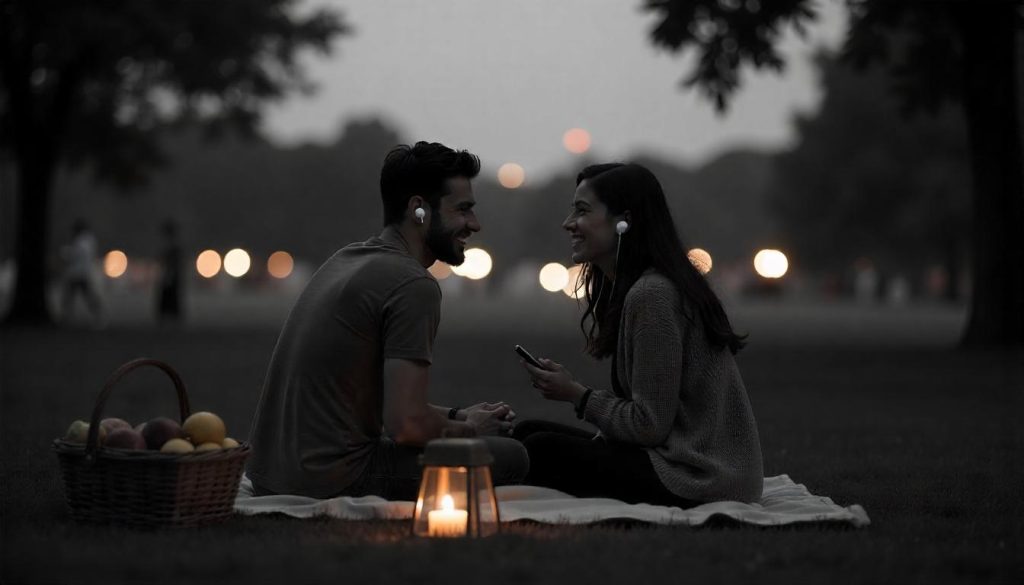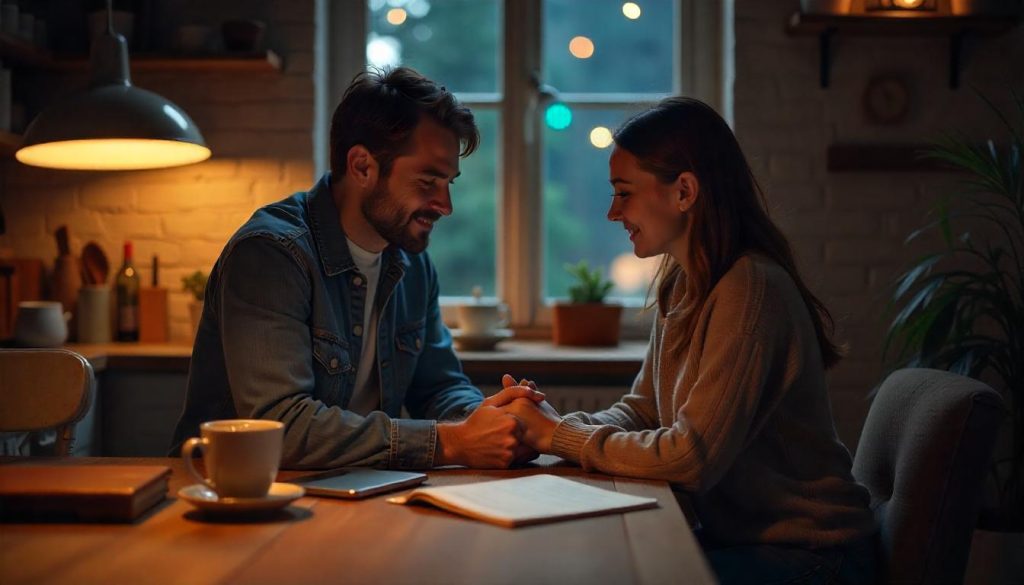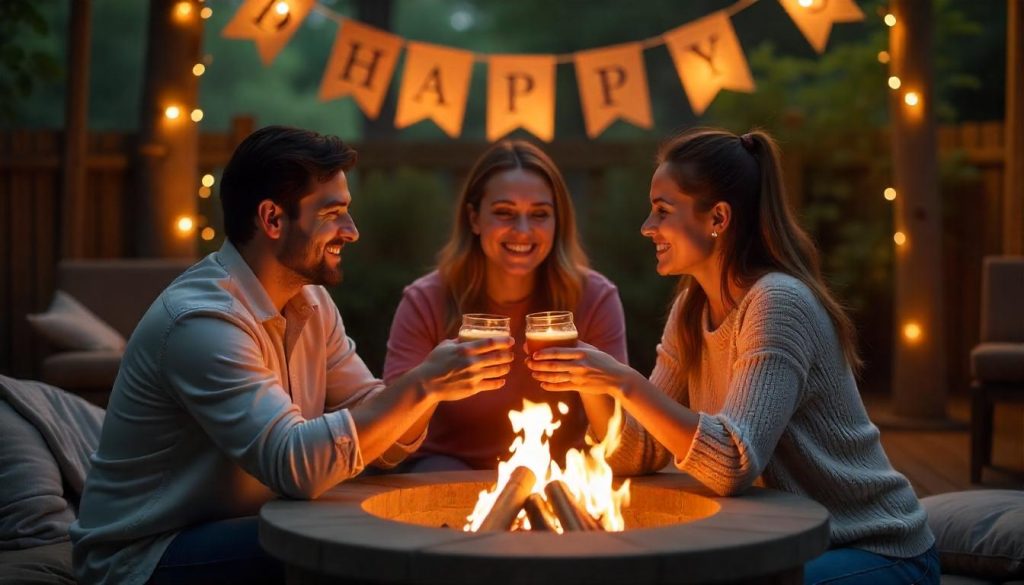Learning to date recovering from trauma requires courage, self-awareness, and a commitment to healing while building meaningful connections. Past trauma—whether from abuse, loss, or betrayal—can cast a shadow over new relationships, stirring fears of vulnerability or rejection. Yet, with the right approach, dating can become a journey of growth and connection. Inspired by Tawkify’s personalized matchmaking, which fosters intentional, compatible relationships, this guide offers practical strategies to navigate dating while honoring your healing process. By setting boundaries, communicating needs, and choosing supportive partners, you can create a dating experience that nurtures both your heart and recovery, proving that love can flourish alongside personal growth.
Why Dating After Trauma Is Unique
Trauma shapes how you perceive trust, intimacy, and safety, making dating a complex but rewarding endeavor. For example, someone recovering from an abusive relationship might fear judgment when sharing their past, hesitating to open up. However, approaching dating with mindfulness allows you to build connections that respect your journey.
Research highlights the importance of this approach: a 2022 study in Journal of Traumatic Stress found that trauma survivors who date with clear boundaries and support report 37% higher emotional resilience than those who rush into relationships. Tawkify’s emphasis on authentic, tailored connections aligns with this, encouraging daters to prioritize healing while seeking partners who honor their recovery.
The Risks of Dating Without Healing
Rushing into dating without addressing trauma can amplify emotional challenges. For instance, unresolved triggers might lead to anxiety during intimate moments, straining new connections. Similarly, ignoring your needs could result in choosing partners who echo past toxic dynamics, perpetuating pain rather than fostering growth.
In contrast, dating mindfully while recovering from trauma builds a foundation of self-respect and safety. Tawkify’s matchmaking philosophy, which prioritizes emotional compatibility, underscores the need to date with intention, ensuring relationships support your healing rather than hinder it, creating space for love that feels secure and empowering.
Comprendere le sfide
Navigating dating while healing from trauma involves emotional and relational hurdles. Therefore, recognizing these challenges helps you approach dating with compassion and clarity.
Fear of Vulnerability
Trauma often makes opening up feel risky, as sharing your past might trigger fears of rejection. For example, you might avoid discussing a traumatic experience, worrying your date won’t understand, which limits emotional intimacy and connection.
Triggers and Emotional Reactions
Certain situations, like physical closeness or heated discussions, can spark trauma-related triggers, causing panic or withdrawal. As a result, these reactions can confuse a partner if not communicated, creating tension or misunderstanding early in dating.
Trust Issues
Past betrayals can make trusting new partners difficult, leading to skepticism or over-vigilance. For instance, you might question a date’s intentions, even when they’re kind, which slows the development of a healthy, mutual bond.
Self-Doubt and Low Self-Esteem
Trauma can erode self-worth, making you feel unworthy of love. Consequently, this doubt might lead to settling for unhealthy partners or avoiding dating altogether, fearing you don’t deserve a fulfilling relationship.
Benefits of Mindful Dating After Trauma
Dating with intention while recovering from trauma offers profound emotional and relational rewards, supporting both healing and connection. Moreover, these benefits highlight the power of a thoughtful approach.
Strengthened Self-Awareness
Dating encourages reflection on your needs and triggers, like realizing, “I need slow pacing to feel safe.” This awareness, aligned with Tawkify’s focus on self-discovery, fosters personal growth, helping you navigate relationships with confidence and clarity.
Empowerment Through Boundaries
Setting boundaries, like saying, “I need time before physical intimacy,” reinforces your worth. This empowerment builds resilience, ensuring dating supports your recovery while attracting partners who respect your needs.
Guarire attraverso la connessione
A supportive partner can affirm your value, helping you reframe past pain. For example, a date who listens empathetically to your story fosters trust, creating moments of healing that deepen your emotional recovery and connection.
Hope for Healthy Love
Dating mindfully shows that love is possible despite trauma, restoring optimism. As a result, each positive date, like a kind conversation, builds faith in relationships, preparing you for a partnership that honors your journey.
Strategies to Date Recovering from Trauma
These practical strategies guide you in dating while healing, ensuring relationships nurture your recovery and foster connection. Each step builds a safe, empowering dating experience.
Prioritize Your Healing First
Continue therapy or self-care practices, like journaling or meditation, to stay grounded. For example, journal, “I’m feeling anxious about dating—how can I feel safer?” This focus, akin to Tawkify’s holistic approach, ensures you date recovering from trauma with emotional stability, ready to connect without compromising your recovery.
Stabilire confini chiari
Define limits that protect your well-being, like, “I’m not ready to share my full past yet.” Communicate these early, saying, “I move slowly in new relationships.” This clarity creates safety, ensuring partners respect your pace and needs, fostering trust from the start.
Comunicare apertamente le proprie esigenze
Share relevant aspects of your recovery with empathy, like, “I sometimes need space due to past experiences.” For instance, during a date, say, “Crowded places can overwhelm me—can we try somewhere quiet?” This openness builds understanding, aligning with Tawkify’s emphasis on honest communication.
Choose Supportive Partners
Seek partners who show patience and empathy, asking on a date, “How do you handle tough conversations?” For example, a partner who listens without judgment when you share a trigger is a keeper. Tawkify’s matchmakers excel at this, pairing you with those who honor your healing journey, easing the path to date recovering from trauma.
Iniziate con appuntamenti poco impegnativi
Opt for relaxed settings, like a coffee shop or park walk, to reduce anxiety. For instance, suggest, “Let’s grab tea and chat—it’s low-key.” This approach minimizes stress, allowing you to focus on connection while feeling safe and in control.
Recognize and Manage Triggers
Identify triggers, like loud noises, and plan dates to avoid them, such as choosing a quiet venue. If triggered, pause and say, “I need a moment to breathe.” This self-awareness ensures you date recovering from trauma with confidence, maintaining emotional balance during interactions.
Build Trust Gradually
Take time to trust, sharing your story in stages as comfort grows. For example, start with light anecdotes before discussing deeper trauma. This gradual approach, supported by Tawkify’s tailored pacing, fosters a bond that feels secure, allowing intimacy to develop naturally.
Reflect on Dating Experiences
After each date, journal insights, like, “I felt safe sharing a little today.” Discuss with a therapist or friend, asking, “Am I honoring my needs?” This reflection, similar to Tawkify’s feedback process, ensures you date recovering from trauma with intention, adjusting your approach to support healing and connection.
Il ruolo di entrambi i partner
Dating while healing from trauma requires effort from both partners, creating a supportive, empathetic dynamic that fosters growth.
The Survivor’s Role
Take responsibility for your healing, communicating needs clearly, like, “I need patience as I open up.” For example, share, “My past makes trust hard, but I’m excited to connect.” Your honesty sets the tone, encouraging a partner to engage with care, aligning with Tawkify’s focus on authenticity.
Il ruolo del partner
Listen with empathy and respect boundaries, saying, “I’m here when you’re ready to share.” For instance, respond to a trigger with, “Let’s take it slow—whatever you need.” Your support builds trust, creating a safe space for connection, reflecting Tawkify’s emphasis on mutual respect.
How Tawkify Supports Trauma-Informed Dating
Tawkify’s personalized matchmaking excels at helping you date recovering from trauma by prioritizing emotional safety and compatibility. Their matchmakers, through detailed consultations, understand your trauma history and needs, pairing you with partners who are patient and empathetic, like someone comfortable with slow pacing. For example, if crowds trigger you, they select dates who prefer intimate settings.
Additionally, Tawkify’s feedback process encourages reflection on how dates align with your healing, noting moments like, “I felt safe opening up.” This curated approach minimizes the stress of traditional dating, creating a space where trauma-informed dating thrives, ensuring relationships support your recovery and growth.
Practical Tips for Dating After Trauma
Queste strategie attuabili ti assicurano di frequentare persone in modo efficace, bilanciando la guarigione con la connessione per un'esperienza appagante.
- Crea un rituale pre-appuntamento: medita o scrivi un diario prima degli appuntamenti per centrarti, riducendo l'ansia.
- Avere un piano di uscita: pianifica una via d'uscita, come "Potrei dover andare via prima", per sentirti in controllo.
- Condividi a piccoli passi: inizia con storie leggere, riservando i dettagli traumatici per quando si sarà instaurata una maggiore fiducia.
- Cerca un supporto informato sul trauma: collabora con un terapeuta per elaborare le emozioni durante gli appuntamenti, garantendo stabilità.
- Celebra le piccole vittorie: riconosci i progressi, come, "Ho condiviso un bisogno e mi sono sentito ascoltato", per costruire fiducia.
Integrando queste pratiche nella tua vita sentimentale, crei un percorso verso l'amore che onora il tuo viaggio di guarigione.
Esempi di successo nella vita reale
Consideriamo Maya, che ha incontrato il suo partner tramite Tawkify mentre si riprendeva da un passato violento. Ha stabilito dei limiti, come evitare il contatto fisico all'inizio, e ha condiviso apertamente i suoi bisogni, dicendo: "Ho bisogno di tempo per fidarmi". La pazienza del suo partner ha favorito la sicurezza, portando a una relazione di fiducia. La sua storia mostra come frequentarsi mentre ci si riprende da un trauma può avere successo con l'intenzione.
Un altro esempio è Leo, che ha lottato con la fiducia dopo un tradimento. Ha scelto appuntamenti a bassa pressione, come visite in libreria, e ha lavorato con un terapista per gestire i fattori scatenanti. Col tempo, ha costruito un legame con un partner gentile, dimostrando che gli appuntamenti consapevoli possono guarire e connettere, anche dopo il dolore.
Superare le idee sbagliate più comuni
Alcuni credono che i sopravvissuti a traumi non possano frequentarsi fino a quando non sono "completamente guariti", ma la guarigione è continua e frequentarsi può farne parte con dei limiti. Un altro malinteso è che condividere il trauma spaventa i partner, eppure quelli empatici apprezzano l'onestà. Riformulando gli appuntamenti come un'opportunità di guarigione, li affronti con speranza, non con paura.
I vantaggi di frequentare qualcuno in modo consapevole dopo un trauma
Frequentare qualcuno reduce da un trauma trasforma il tuo percorso, promuovendo la resilienza, la fiducia e la speranza di un amore sano. Ti consente di stabilire dei limiti, approfondisce la consapevolezza di te stesso e costruisce connessioni che onorano il tuo valore, facendo eco alla missione di Tawkify di creare relazioni significative. Ogni passo, che si tratti di un limite stabilito o di una storia condivisa, rafforza la tua guarigione, dimostrando che l'amore può coesistere con la guarigione, creando un futuro ricco di possibilità.
Questo approccio assicura che gli appuntamenti siano potenzianti, non opprimenti, radicati nel rispetto di sé. Affrontando le relazioni sentimentali con cura, si crea spazio per un amore che non è solo romantico ma profondamente di supporto, pronto a fiorire insieme alla tua crescita.
Costruire l'amore con la guarigione
In definitiva, imparare a frequentare persone che si stanno riprendendo da un trauma significa onorare il proprio percorso aprendo il cuore alla connessione. Significa bilanciare la guarigione con la speranza, scegliere partner che elevino e costruire una relazione che sia percepita come sicura e autentica. Che tu sia guidato dall'esperto matchmaking di Tawkify o dai tuoi sforzi consapevoli, queste strategie ti consentono di uscire con sicurezza. Quindi, stabilisci dei limiti con coraggio, connettiti con intenzione e intraprendi il tuo percorso di appuntamenti sapendo che l'amore può sbocciare magnificamente insieme alla tua guarigione, creando una partnership tanto resiliente quanto radiosa.











